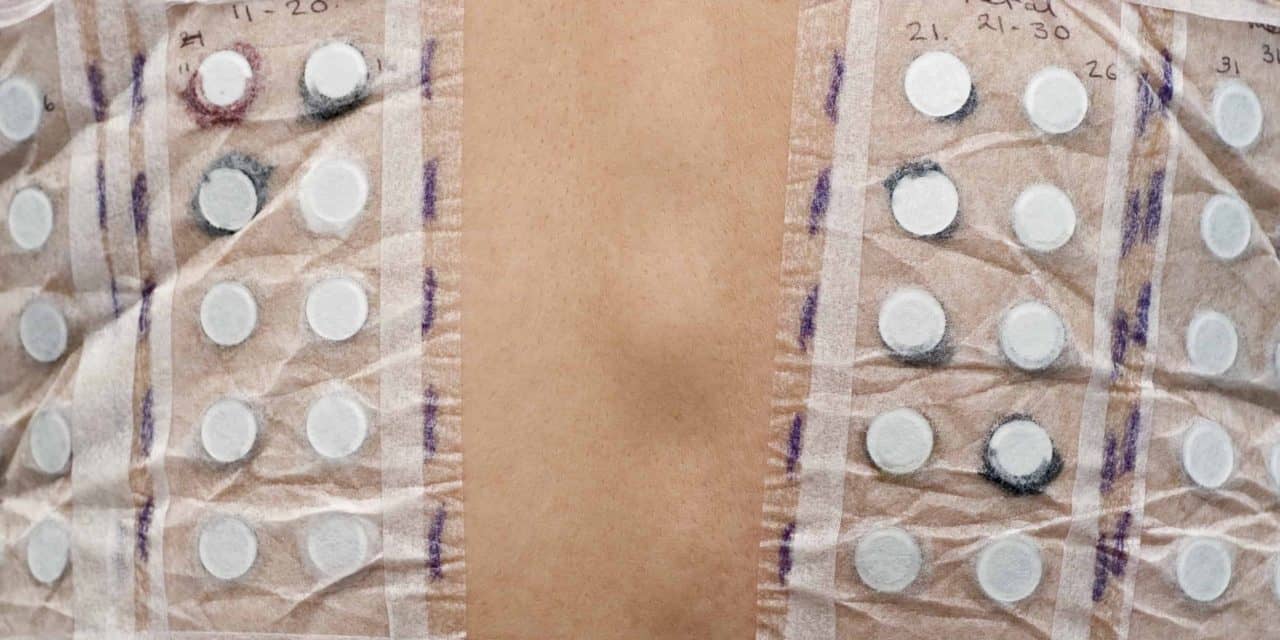With recent data suggesting that for each allergist in the United States there about 6,000 people reporting a penicillin allergy, this and other antibiotic allergies represent an important issue for the U.S. healthcare system. The sheer number of patients reporting penicillin allergy “leads to a tremendous healthcare burden and unnecessary expenses due to at least three reasons,” says Elina Jerschow, MD, MSc, FAAAAI. “1) The use of alternative antibiotics that are more expensive; 2) more antibiotic resistance; and 3) more side effects.”
Graded challenges have been used for years to exclude hypersensitivity reactions in patients with a low likelihood of drug allergies. However, data are lacking on optimal protocols with a defined number of steps and the use of placebo. For a study published in The Journal of Allergy and Clinical Immunology: In Practice, Dr. Jerschow and colleagues sought to identify allergic drug reactions through a three-step protocol composed of placebo followed by a two-step graded drug challenge.
Analyzing Drug Challenges
The researchers performed a 5-year retrospective chart review of patients with historical allergic drug reactions who underwent single-blind, placebo-controlled graded drug challenges at an outpatient drug allergy clinic. “We provided evaluation of penicillin and other antibiotic allergies by using standard of care (skin test and challenges) and adding placebo,” explains Dr. Jerschow. “The addition of placebo was thought to be necessary as many patients (about 11% to 12% in our study) experience subjective reactions that are often not due to medication, but due to the anticipation effect. Adding placebo helped to distinguish between symptoms due to placebo and due to drug.”
The study team found that beta-lactams were the most commonly challenged drug class (70.8%), followed by NSAIDs (17.5%). Reaction rates to drug and placebo were similar during beta-lactam challenges (9.4% vs 8.2%) and during NSAID challenges (14.0% vs 7.0%), respectively. Only 4.4% of patients had objective findings during drug challenges. “Not all patients who report medication allergies are allergic to medications,” adds Dr. Jerschow. “Evaluation of these patients by allergists is important in order to make more treatment choices available and to simplify treatment of these patients by being able to prescribe their first-choice medications.”
Dr. Jerschow and colleagues also found that patients who reacted to placebo prior to beta-lactam challenges had an increased number of drug allergies when compared with nonreactors and with beta-lactam reactors. In addition, some reactions were found to not be medication-induced (Table). “Distinguishing between placebo- and drug-induced reactions is important to provide appropriate treatment to the patients,” says Dr. Jerschow.
When analyzing data by gender, the researchers found that female patients in the study reported a significantly higher number of baseline drug allergies than male counterparts (2.65 vs. 1.76). While men were more likely to report a history of severe historical allergic drug reactions, reaction rates were similar between genders during graded challenges to drugs. “Most men in our study seemed to seek the help of an allergist for allergic reactions to medications only if such reactions were severe,” Dr. Jerschow explains. “Women in our study population were more likely to react to placebo.” In fact, only female patients reacted to placebo. Dr. Jerschow can only speculate that women might be more sensitive or attentive to changes in their bodies.
It is important to note that the study population included minorities, according to Dr. Jerschow. “Previous studies of drug allergies predominantly included only Caucasians.,”she notes. “We observed similar outcomes among Caucasians and non-Caucasians in our population.”
Important Implications
In efforts to reduce, or even eliminate, the antibiotic resistance “epidemic” in the U.S., more effective and less expensive medication are needed to treat patients. When patients who report allergic drug reactions are tested by an allergist and found to not actually have these allergies, some of these more effective, less expensive medications become available again, explains Dr. Jerschow. The current study indicates that the addition of placebo to two-step oral graded drug challenges can aid in achieving these goals, by helping reduce false-positive challenge reactions, particularly in female patients and those with multiple reported drug allergies. To further solidify their findings, Dr. Jerschow and colleagues are continuing their study of placebo-controlled challenges prospectively and how to present their results in the near future.



 PWeekly
PWeekly